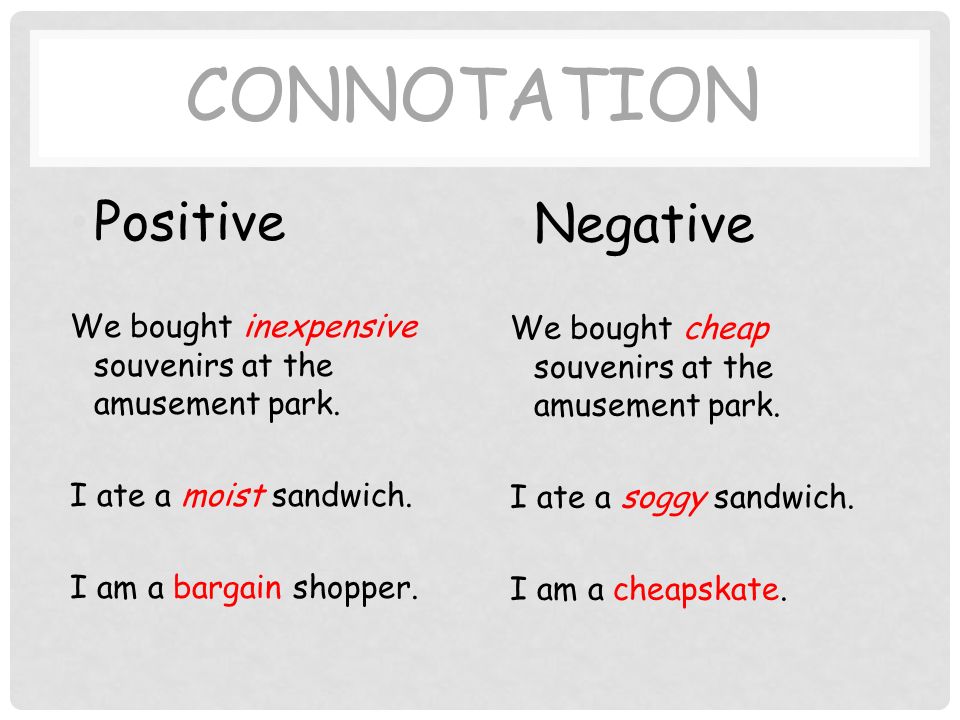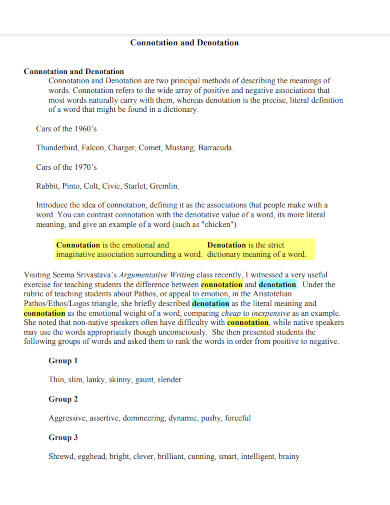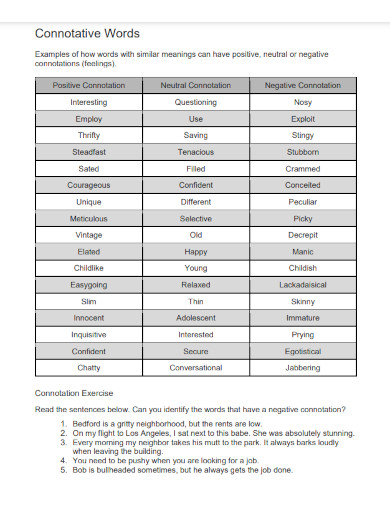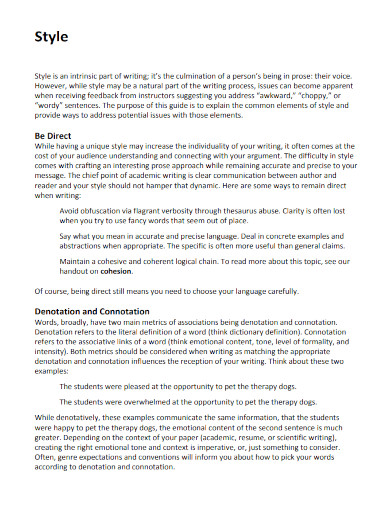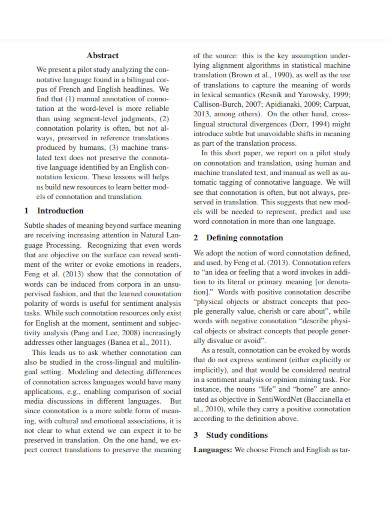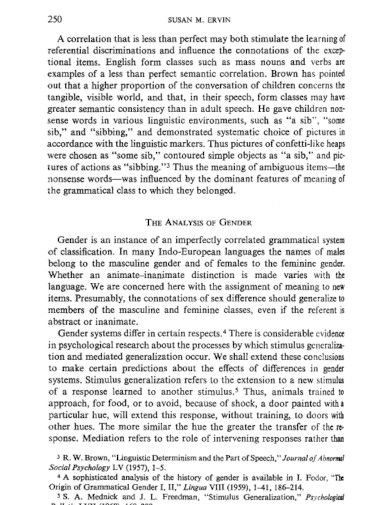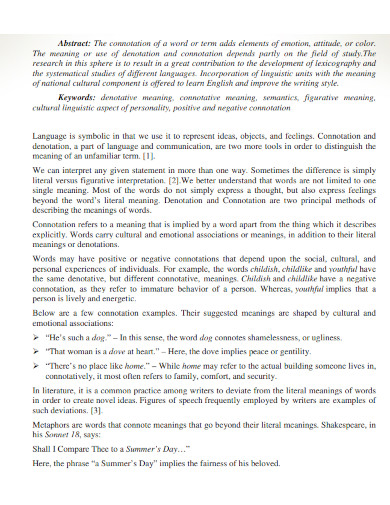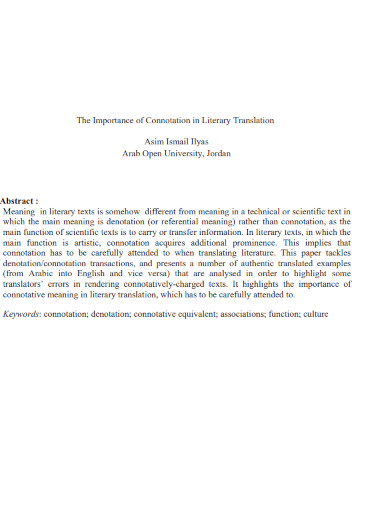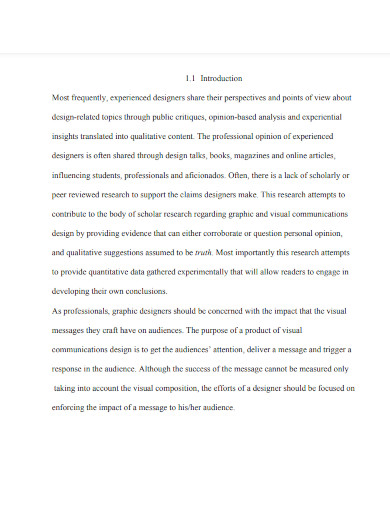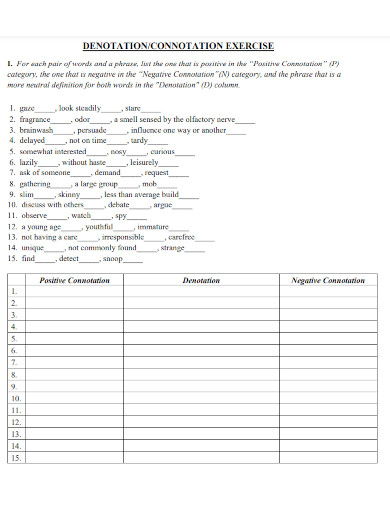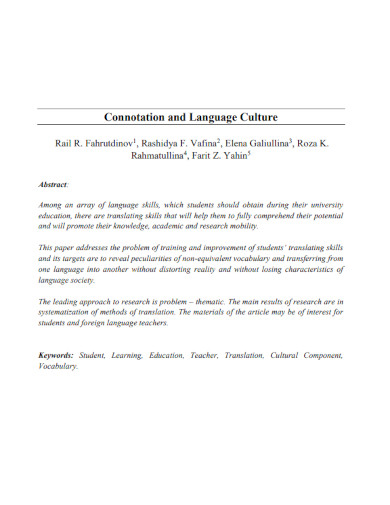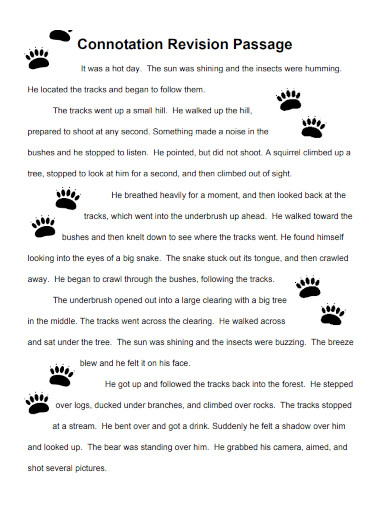10+ Connotation Examples to Download
There are times wherein you would not directly say what you actually felt but would only use words that would only imply. Words have their own basic definitions but it could have a lot various connotations depending on the emotions or meaning implied by the sender of the message. One method of implying our feeling into the words we use is connotation. You may also see examples of verbal irony.
1. Denotation and Connotation Example
2. Connotative Words Example
3. Be Direct Denotation and Connotation
4. Connotation in Translation Template
5. The Connotations of Gender
6. The Importance of Denotation and Connotation
7. Importance of Connotation in Literary Translation
8. Typeface Connotation Example
9. Connotation Execrise Example
10. Connotation and Language Culture
11. Connotation Revision Passage
What Is Connotation?
Words have their own basic definitions but it could have a lot various connotations depending on the emotions or meaning implied by the sender of the message. Connotation, means something suggested by a word or thing. It could also mean implication. It is also defined as the suggestion of a meaning by a word apart from the thing it explicitly names or describes. Different kinds of irony like verbal irony, situational irony, dramatic irony, sarcasm, and has connotations emphasize on their examples.
How to Use Connotation in Your Sentences
Being careful with how you may want to convey your words in a sentence is normal. This is why a lot of rules have to be followed when using connotations in sentences. Here are a few simple steps to get you started.
Step 1: Choosing the Right Words to Use
Often than not, when we think of choosing the words to use to convey what we mean, we often forget that different words or jargon may give out a different meaning and will also give out a different tone. In order to set things straight and to convey the words you want, choose them wisely.
Step 2: Know Your Audiences
Considering the type of audiences you have may also depend on the way you use your connotations. As it can give out a huge effect considering someone’s subculture, culture, belief, experiences, and background. You would not want to hurt someone or give them something that they may associate as something negative instead of positive.
Step 3: Be Careful How You Phrase Your Words
When you use connotations to explain how the sentence would be interpreted, you must also be careful how you would want to phrase the words for your sentences. There are some words that may sound good in your sentences but may end up being interpreted as something different.
Step 4: Experiment by Using Other Words
The best thing about connotations is the fact that you can experiment with other words that could give your sentences a better meaning. Different connotation words give your sentences an easier and more explainable meaning to it.
FAQs
What are the elements of connotations?
The elements of connotations are: cultural association, personal experiences, tone, associations with other words, and historical context.
What are the types of connotations?
The types of connotations are: positive connotation, negative connotations, and neutral connotations.
Why is connotations important?
The reason why it’s important to use implication in your sentences is because implication affects how your audience or readers interpret the meaning behind the message. It helps your audience and readers understand what is the hidden message between the lines. It also affects how they feel about certain words or ideas, which will also help shape their beliefs, behaviors, and attitudes.
When you think about meaning, you think about words, meanings, ideas that your audience or readers want to understand. The way they perceive or understand the words in a sentence will also affect how they grasp what is said in the sentence. That’s why you need to be careful in using common words, because some words that sound positive can turn out to be negative.


